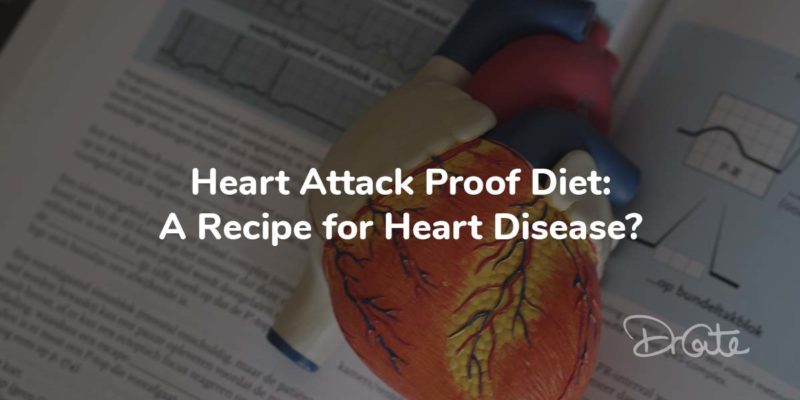PUFA-Project: Scientific References on Seed Oil Toxicity
Mission: To promote consumer awareness of the evidence that PUFA overconsumption from seed oils that are wrongly promoted as healthy may be the underlying driver of most non-infectious diseases To increase health professionals' awareness of the role of high-PUFA refined oils (The Hateful Eight) in driving non-infectious disease To support businesses that avoid seed oils and offer consumers healthy fats and oils (click here for products) To support global human nutrition and health by elevating culinary skills that wean us off seed oils Basic Principles PUFA stands for polyunsaturated fatty acid. PUFAs react with oxygen and deteriorate into toxins. Saturated…
Statin Side Effects Slowing You Down? Why your doctor may not be able to help.
Heart Attack Proof Diet: A Recipe for Heart Disease?
CNN keeps airing “The Last Heart Attack,” in which Dr. Sanjay Gupta tells the story of how and why President Bill Clinton was put on a vegan diet by Dr. Dean Ornish, and how Dr. Caldwell Esselstyn's #1 selling book Prevent and Reverse Heart Disease echos the same dietary advice. As you know, reversing disease is something I care a lot about, but I'm not convinced Dr. Essylstyn's heart attack proof diet is delivering what he promises. Does this story really have a happy ending? Early in the show Dr. Gupta discusses Clinton’s strict vegan diet and defines its underlying philosophy:…
If Your Doctor Recommends Against Vitamin D, Here’s Why
Vitamin D is known to reduce bone loss, but the NEJM advises against its use. The prestigious New England Journal of Medicine, which has recently tarnished its reputation by refusing to publish articles unfavorable to popular prescription drugs, is barreling forward this week with its anti-natural, anti-health approach to medicine in asserting that vitamin D should not be universally recommended for postmenopausal women with low levels of vitamin D, and stating that we need a 5-year randomized trial before we can safely recommend its use for reducing the risk of heart disease or cancer.*The journal describes a postmenopausal woman in her…
Lose Belly Flab in Three Weeks!! (It can be done, and here’s why you should)
Big bellies bulge when a person's diet is particularly bad. Belly flab is an important external sign of metabolic inflammation. According to new research, even thin people with a little bit of belly flab are looking at problems down the road. A study published this week in the Archives of Internal Medicine suggests that relatively normal weight people who add bulk in the bellies, as opposed to other places, are at nearly the same risk of dying from respiratory diseases (like asthma and pnumonia), cardiovascular diseases (like heart attack and stroke), and cancers as people who are morbidly obese. "Even…
FDA Officially Unconcerned that Crestor Causes Diabetes
Imagine a world where everyone is on powerful cholesterol-lowering drugs. Not just sick people. Everyone. Astra Zeneca has imagined it, and now they're going to see their dream come true. On December 16, the FDA announced their approval of Astra Zeneca's cholesterol-lowering drug Crestor for use in people without high cholesterol despite the fact that a new study showed conclusively that the drug causes diabetes. By a vote of 12 to 4, the panel judged that even people at very low risk of heart disease should take the cholesterol medication anyway. "I do think the diabetes problem is real, but…



